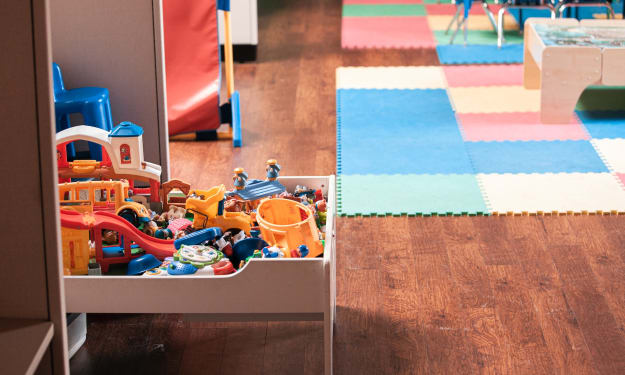Tips to Foster Self-Confidence within Children
As children grow older, confidence can be just as important as skills. To thrive, children must have faith in their abilities while also knowing that they can cope if they fail at something. They develop healthy self-confidence by experiencing mastery and rebounding from failure.

As children grow older, confidence can be just as important as skills. To thrive, children must have faith in their abilities while also knowing that they can cope if they fail at something. They develop healthy self-confidence by experiencing mastery and rebounding from failure.
As parents, having confidence can improve your overall effectiveness as well as your well-being. The educational landscape changes, or you discover that you need to modify your parenting style and take the help of teaching strategies lesson plan for preschool. Unfortunately, children can detect a lack of confidence in their parents as well. Everyone, whether a new parent or a seasoned parent, requires a confidence boost now and then, especially when faced with new challenges.
It's great for a child to get a pat on the back and an instant confidence boost from someone else, but you can't rely on others to keep the child feeling confident. You are in charge of fostering and developing the child's self-esteem.
Preschoolers have a better sense of who they are and how they fit into the world. They develop self-confidence in stages by building trust, independence, and initiative. They gain self-confidence primarily through physical comparisons with other children, such as height, size, agility, and abilities.
Top 10 ways to boost self-confidence in kids
Here are some ways we can help kids feel capable and make the most of their skills and talents.
Be confident yourself
Even if you're not feeling it, seeing you tackle new tasks with enthusiasm and care sets a good example for children. That doesn't mean you have to act perfect. Recognize your anxiety, but instead focus on the positive things you're doing to prepare.
Few Mistakes are Okay
Help children understand that everyone makes mistakes and that the important thing is to learn from them rather than dwell on them. Confident people don't let fear of failure hold them back, not because they're certain they'll never fail, but because they know how to deal with setbacks.
Try to indulge them with new things
It is beneficial for children to diversify their interests rather than focusing all of their energy on what they already know. Learning new skills makes children feel capable and confident that they can handle whatever challenges they face.
Failing isn’t a worry
It's natural to want to shield children from failure, but trial and error is how children learn, and falling short of a goal teaches children that failure is not fatal. It can also motivate children to work harder, which will benefit them as adults.
Praise their perseverance
Learning not to give up after the first setback or frustration is an important life skill. Confidence and self-esteem aren't about always succeeding at everything; they're about being resilient enough to keep trying and not getting discouraged if you're not the best.
Let them search for their passion
You can assist children in developing a sense of identity, which is essential for developing confidence. Of course, seeing their abilities develop will boost their self-esteem tremendously. They can excel in that passion even in preschool with preschool lesson planner.
Appreciate the efforts
It's important to praise children for their accomplishments, but it's also important to let them know you appreciate their efforts regardless of the outcome. It takes time and effort to learn new skills, and the rewards aren't always immediate. Let children know you appreciate their efforts, especially if they are toddlers building with blocks.
Enroll them in some tasks
They may whine, but kids feel more connected and valued when they are assigned age-appropriate tasks, such as picking up toys, doing dishes, or picking up younger siblings from a play date. Preschools always address children based on their age and abilities.
Accept imperfection
As adults, we understand that perfection is unattainable, and children should learn this as early as possible. Help children understand that the idea that others are always happy, successful, and perfectly dressed, whether on TV, in a magazine, or on a friend's social media feed, is a fantasy and a destructive one. Instead, remind them that being less than perfect is both human and acceptable.
Give them an idea of success
Children benefit from challenges, but they should also have opportunities where they can be certain of success. Encourage your child to participate in activities that will make him feel comfortable and confident enough to take on a larger challenge.
About the Creator
Amit Kumar
Full-time thinker & part-time writer...
Enjoyed the story? Support the Creator.
Subscribe for free to receive all their stories in your feed. You could also pledge your support or give them a one-off tip, letting them know you appreciate their work.






Comments
There are no comments for this story
Be the first to respond and start the conversation.